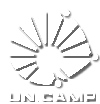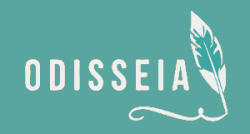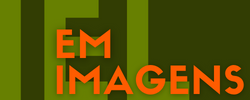About
The Graduate Program in Literary Theory and History, currently with a score of 7 in the Capes evaluation, began in 1977. It was officially established in 1980, only with a Master's course and then with its Doctorate degree program in 1987. From its inception the program was aimed at the formation of literature researchers in a wide and multidisciplinary design, which has enabled it to attract for over more than three decades, students from all over Brazil and abroad (with significant demand from Hispanic-American students and, more recently, students from other continents).
The program maintains a close link with the discussions and guidelines of the Department of Literary Theory (DTL), which deliberates on matters of common interest through regular meetings. The Graduate Studies subcommittee consists of a coordinator and two members elected for two-year terms. In 2000, the Graduate Studies Guidelines were approved and its most significant change has been the intensification of curricular flexibility, giving students greater freedom in the choice of subjects, according to the specific objectives of each individual project.
Therefore, every course that integrates the catalog is classified as part of the Common Domain, eliminating the old distinction between mandatory and elective. The Specific Domain, aiming at giving space curriculum space for the realization of Orientation Seminars coordinated by appointed advisors or professors, allows the student to concentrate on studies directly linked to their research topic, collaborating with their training and the development of their project.
The program's major areas are:
1. Theory and Literary Criticism
2. Literary History and Historiography.
The research topics for each major area are:
Major area 1 - Theory and Literary Criticism:
- Critical and theoretical Literature studies
- Comparative and interdisciplinary Literature studies
Major area 2 - Literary History and Historiography:
- Literature history and poetics up to the 18th century;
- Romanticism and its developments;
- History and poetics of modernity.
The number of courses to attend for both the Master's and the Doctorate degree programs are the same: 3 from the Common Domain and 2 from the Specific Domain.
Regarding the possibility of direct PhD, the master's student is granted the right to request its approval by the Graduate Studies Subcommittee, as long as they have been nominated by their examining board. The final decision regarding the request is issued by the Department.
All program faculty have research projects and all existing research topics are contemplated.
Several developed projects have collective dynamics and have repercussions on inter-institutional initiatives. For example: a) the international cooperation project "The transatlantic circulation of printed materials through the globalization of culture in the nineteenth century", from 2011, by Professor Márcia Abreu; b) Procad / Casadinho (CAPES / CNPq) agreement, started in 2011 with the Federal University of Santa Catarina, with the coordination, at Unicamp's side, by Professor Marcos Siscar; c) the thematic project Memória(s) e pequenas percepções (Memories and Small Perceptions), funded by FAPESP, started in 2010, with the participation of Professor Suzi Frankl Sperber
The infrastructure offered by Unicamp for training and research, thanks to the efforts of the Dean's Office and the Institute's Director, but also thanks to the very high uptake of resources provided by funding agencies (FAPESP, CNPq, CAPES, FINEP, etc.) it is certainly one of the best in the country. These features include a comprehensive and updated library, and advanced equipment in computer laboratories, a cultural documentation center, the Alexandre Eulalio Center (CEDAE), and an Academic Data Sector.
The program currently has 28 professors, 22 of them are permanent and 7 are collaborators. All of the permanent professors work in the undergraduate and graduate courses.
Of the 28 professors that take part in the Program, 22 of them have a post doctorate degree. It is thus a highly qualified and balanced faculty whose members are always seeking to update their knowledge and keep up with the current research in the field. Many of the professors that take part in the Program hold Productivity Scholarships from CNPq. All of the professors are accredited in the program.
In 2015, the Program has trained 80 doctors and 67 masters, of which 26 doctors and 19 masters come from external institutions. The profile of graduate students is diverse because the program supports graduate students from different backgrounds (Language Arts, History, Social Studies, Literary Studies) and has received doctoral students from all regions of Brazil and from abroad (in 2015, France and from China). That same year, the program received a total of 84 grants from various funding agencies (CAPES, CNPq, FAPESP).
In the context of policies to promote training and student production, the program takes part in the Ongoing Thesis Seminar (SETA) and the SETA Proceedings (journal kept by the Institute, duly updated and with online access)
The Institute's Journal "Sínteses" (Synthesis) is intended to publish articles containing the results of research conducted in the Graduate Programs, and also the teacher training program (PED), which in 2015 had 17 scholars and 3 volunteers from the program.
We must also emphasize the program's policy of encouraging post-doctoral research: in 2015, the program had the participation of 32 collaborating researchers.
The general and specific objectives of the program meet the general regulations of the the Graduate courses at Unicamp (resolution of CONSU A - 808/2008 of 25/03 2008), and the course of program aims at developing the following scientific and professional skills:
- Teaching in primary and higher education, ability to work in higher education in public or private institutions as professor in several areas of literary theory, history and historiography of literature, canonical literature, comparative literature, Portuguese language, and foreign languages.
- Competence in literary criticism with the ability to perform tests and long winded studies, reviews, critical journalism, consulting work in the area, discussions of aesthetic, literary and historiographical ideas, creative skills in the literary writing field.
- Aptitude for editorial work.
- Suitability for the correct use of scientific collections, archives and bibliographies of the area and to conduct current research that permanently ensures the connection between learning and teaching.
























